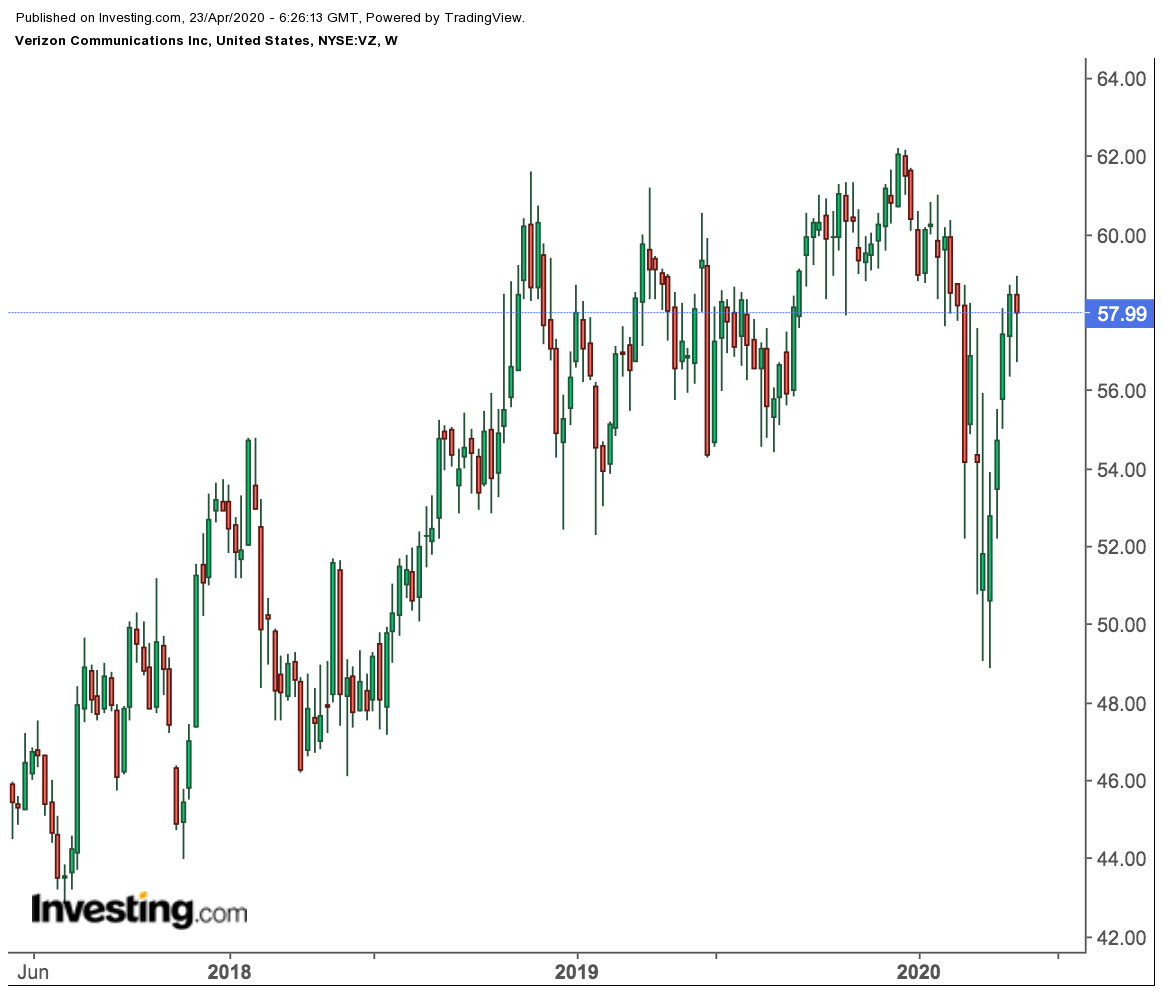* Reports Q1 2020 results on Friday, April 24, before the market open
* Revenue Expectation: $32.47 billion
* EPS Expectation: $1.23
As a rule, telecom utilities are dependable businesses during times of extreme economic downturn. For Verizon (NYSE:VZ), this defensive positioning will come under sharp investor scrutiny tomorrow when the largest wireless carrier in the U.S. is scheduled to announce its first quarter earnings.
Much like for other companies across all industries, the coronavirus pandemic and closure of the U.S. economy have added a layer of uncertainty for Verizon. Investors will be keen to know whether the company’s mobile, broadband and entertainment services are taking a hit when millions of people are losing their jobs and small businesses are being shut.
In this gloomy economic environment, however, there are reasons to expect Verizon will be one of the companies to weather the storm better than most.
Instead of bulking up its balance-sheet with mega deals, Verizon has been focusing on improving its infrastructure. The company has avoided the big entertainment acquisitions that peers like AT&T (NYSE:T) have pursued.
Focus on Smaller Deals
Instead, the carrier has made smaller bets focused on enhancing its strategy to quickly improve its network. Due to its timely acquisition of Straight Path Communications in 2018, Verizon is ahead in the race to build a 5G (fifth-generation) network, part of an industry-wide effort to increase speeds and open up new revenue sources.
Last week, Verizon announced another important deal as part of its smart acquisition strategy when it announced the acquisition of BlueJeans Network, a privately held videoconferencing rival to Zoom Video Communications (NASDAQ:ZM), which has become the face of at-home work during this pandemic with a public market value of $42 billion.
The terms of the deal weren’t disclosed, but according to Bloomberg, the price is about $400 million, making it one of CEO Hans Vestberg’s biggest purchases since taking the helm at Verizon in August 2018.
This traditional, slow but steady approach isn’t generating too many headlines for the carrier. However, it's clearly helping keep the growth momentum going.
Over the past few quarters, Verizon has been doing a great job in adding new customers to its network and keeping customers from switching to other networks. In the fourth quarter, for example, postpaid net additions of 1.25 million were the best since 2015.
For income investors, the most important thing is to see how effective their investments are through the thick and thin of market activity. Verizon, this year, has hugely outperformed on both metrics, versus the S&P 500 and the company's closest rival, AT&T.
Since the start of 2020 Verizon shares are down just 5.5% versus a 13% decline for the benchmark index and a 24% plunge in AT&T stock.
Verizon also has a solid track record of rewarding investors with growing dividend payouts. The company hiked its quarterly dividend by 2% last year, bringing its quarterly payout to $0.615 a share. At the stock's current $57.99 price, the stock now yields 4%.
Bottom Line
Telecoms may not provide hefty capital gains such as those delivered by high-flying, more volatile technology stocks. But the downside risk during times of distress is also limited.
With its strong balance-sheet, growing dividend and leading position in the 5G rollout, Verizon is a solid—and comparatively safe—income choice for long-term investors looking to shield their portfolios from ongoing market volatility.
